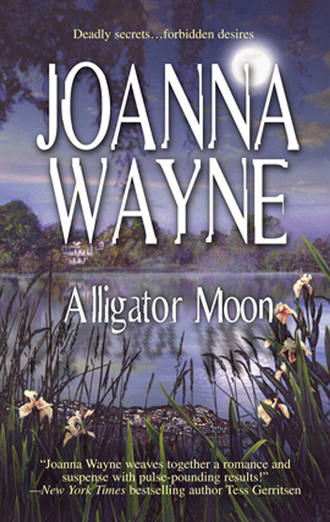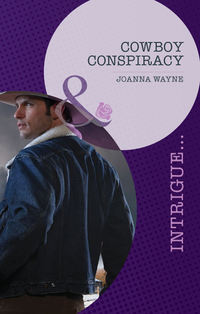
Полная версия
Alligator Moon
“What is it now?” she asked.
“Dennis Robicheaux shot and killed himself last night.”
“Oh, no! Not Dennis.”
His towel slipped from his waist as he reached for her and pulled her into his arms.
“Not Dennis. Please. Not Dennis.”
“I know it doesn’t seem possible, but these things happen.”
“He didn’t kill himself. I know he didn’t. He wouldn’t.”
“You don’t know him that well, sweetheart. He had some problems.”
“No. Not Dennis. He wouldn’t kill himself. Why would he?”
“Who knows? Maybe it’s the Robicheaux blood. Look at his brother. As soon as the first blast of adversity hit, John came running home to drown himself in whiskey and the same stinking life he’d worked to escape.”
“Dennis wasn’t like John.”
“I’m not saying he was, but he was still a Robicheaux.”
“It was the reporters who did this to him, Norman, not his Robicheaux blood. They kept hammering away at him, determined to blame Ginny Lynn Flanders’s death on him.” She pulled away, looked in the mirror, then dabbed her eyes with the back of her hands. “What will this do to the lawsuit?”
“Nothing. The reporters will howl and make a big show about it, but in the end, it won’t have a thing to do with the legal proceedings.”
“I hope you’re right.”
So did he. “I’m going to finish my shower and meet the sheriff out where they found the body.”
“I want to go, too.”
“It’s no place for a woman.”
She barely knew Dennis, but she had a tender heart, cried over dead goldfish. He’d like to stay here with her. He sure had no desire to see the body, but he had to be certain John didn’t throw some of the stinking Robicheaux shit into the mix.
This was suicide. And a suicide it would stay.
CHAPTER THREE
JOHN HIT the brakes and steered the car to the shoulder of the narrow road. A group of about six men stood in ankle-deep water a few yards away, gathered around the body. The body. Dennis.
The reality of the situation hovered over him, but it hadn’t struck yet. Once he walked over and stood where the sheriff and the others were, once the image got inside his head, reality would grab him by the balls and squeeze down tight.
A warning screamed and echoed in his ears as he sloshed into the bog. Hold back the day. Hold back the stinking black day. But the sun was already beating down on him, the fetid air already clogging his lungs. There could be no holding back.
His boots sank into the mud, stirring up the mosquitoes that hid in the low grass.
“I’m sorry about this, John, really sorry.”
John nodded, acknowledging the sheriff’s words but avoiding eye contact with him and the others. He didn’t want to feel any bond with them, didn’t need their self-serving commiseration. Pity was debilitating, and he needed his wits and strength to see him through this.
He forced himself to look at what was left of Dennis. For a second, he thought he might just collapse and evaporate in the morning heat. Somehow he held it together and his training as a defense attorney checked in, registered every contingent. The position of the body, the bloodied and shattered remains of the brain. The splatters of blood on the thick plants that clogged the swampland.
“It’s a rotten shame,” LeBlanc said. “Dennis was a good man.”
“Yeah. A rotten shame. Has the body been moved?” John asked.
“We haven’t touched it,” Babineaux answered.
“I want pictures before it’s moved to New Orleans for an autopsy.”
“I know this is tough, John, but you need to get a grip. What’s an autopsy going to show that we can’t see for ourselves plain as day? Dennis was shot in the head at point-blank range with his own gun. We found the weapon right at his fingertips.”
“How do you know it was Dennis’s gun?”
Babineaux held up a plastic bag containing a small blue metal Colt .45 with a brown wooden grip. “Are you going to tell me it isn’t?”
John stared at the weapon. It was his grandfather’s pistol, World War II vintage, the first weapon John had ever shot. He’d practiced his aim by firing it at tin cans behind the house long before he was old enough to get a driver’s license.
“I recognize it,” he said, figuring it was no use to lie. Babineaux had taken the thing away from the old man often enough when he’d had too much to drink in Suzette’s and started waving it at anyone fool enough to argue with him.
“I don’t give a damn if you found his finger on the trigger. Dennis didn’t shoot himself.”
“No sign there was anyone else with him.”
“You don’t have any proof there wasn’t. So I suggest you get a decent crime-scene unit out here even if it means calling one in from New Orleans.”
“I don’t know what they’d do that I haven’t.”
“I want every detail you can sieve out of this bloody swamp.”
“I’m sorry about your brother, John. We all liked Dennis. You know that. But the guy had problems and maybe he just couldn’t deal with them.”
“Or maybe Norman Guilliot couldn’t.”
“Don’t go making crazy accusations.”
“Then do your job.” John swatted at a mosquito that was feeding on his neck, then walked toward Dennis’s car. It looked as if he’d just lost control and slid off into the bog. A few seconds later and he’d have hit the bridge railing or possibly plunged into the rain-swollen bayou.
Maybe that’s what the killer had meant for him to do. A nice, accidental drowning. The gun might have been the insurance, plan B in case the first option didn’t fly. Either way, something must have been planted to make certain Dennis left the road at the specific spot where his killer was waiting.
Possibilities swirled in the fog that filled John’s mind. He looked up as a black Porsche skidded to a stop along the shoulder of the road.
Dr. Norman Guilliot crawled from the low-slung car and took a few steps toward them with the same air of authority he probably flaunted in the operating room. But a few steps were all he’d be taking. Dressed in white trousers and a light blue pullover shirt, he wasn’t about to traipse through the murky water the way the rest of them had.
At least not in the hot glare of the day with witnesses all around. Last night would have been a different story. John imagined him, slinking around in the dark, startling Dennis then sticking the pistol to his head. Dennis would have been an easy target, like blinding a doe with a high-powered flashlight and taking it down at point blank range. The kind of high-stake, no-risk operation a man like Guilliot would choose.
The sheriff started toward Guilliot and the rest of the entourage followed, leaving Dennis’s body to the insects and the stifling humidity.
John felt the hate swelling inside him and welcomed it. He could get his hands around hate, it was so much easier to deal with than the pain. He strode toward Guilliot, reaching him a few seconds after the others.
“I’m sorry about this, John, really sorry. I don’t know what else to say. I’m still reeling with the shock of it myself.”
“Shock doesn’t show much on you, Guilliot.”
Guilliot fixed his gaze on John, a study in faux compassion. “I’m not going to get into an argument with you at a time like this. I won’t show that kind of disrespect toward Dennis.”
“Your concern is underwhelming.”
Dr. Guilliot shrugged his shoulders. “If blaming me helps you deal with this, go right ahead, John. But it doesn’t change anything. Dennis took his own life, and I guess that means we all let him down, including you.”
“Dennis didn’t kill himself. He had no reason to.”
“Guess you best take that up with Sheriff Babineaux.”
The sheriff sidled up next to Guilliot. “I told you we don’t need no trouble out here, John. Why don’t you go back to your place and clean up a bit? Call you a friend to go to the funeral home in Galliano and make what arrangements need to be made.”
John turned and stared at the sheriff, studied his gray eyes, his two crooked front teeth and the way his bottom lip curled downward as if it wanted to crawl away from the rest of his mouth. He’d known Babineaux all his life, but he wasn’t sure he’d ever really noticed him until today. Now everything about the sheriff and the entire morning were searing their way into the lining of John’s brain.
“I expect, no make that demand, an autopsy, Babineaux. You see that it’s done or I see your ass in court.”
Guilliot moved into John’s space, his eyes narrowed and accusing. “Making a big show’s not going to bring Dennis back or atone for that little girl you set the monster loose on, John. So why don’t you just let your brother rest in peace?”
John fought the sudden urge to bury his fist into Guilliot’s gut. Instead he turned and walked back to his truck, wondering how in hell Dennis’s life had come to nothing more than a decaying body half-buried in a stinking bog on the edge of the road.
Both Babineaux and Guilliot probably thought this would blow over, that John would go home and drown his grief in a fifth of Jack Daniel’s, but they were wrong. Someone had murdered Dennis and John would see that the man who had done it paid if he had to strangle him with his bare hands.
If it turned out to be Dr. Norman Guilliot, the act would be pure pleasure.
CASSIE DROVE to Beau Pierre on Sunday afternoon, more to scope out the place than to do any kind of in-depth investigating. The newspapers and TV news broadcasts would carry the facts surrounding the suicide, but sterile details were not what Olson would be looking for.
Cassie had some ideas brewing in her mind, but she wanted to get a feel for the lay of the land and the emotional climate of the setting before she met with her boss the next morning.
She’d done her homework yesterday, searched for any information she could find on the small town of Beau Pierre. It was no more than a dot on the map, a fishing village a few miles south of Galliano.
It was like dozens of other fishing villages in the area except that Beau Pierre was home to the Magnolia Plantation Restorative and Therapeutic Center, the clinic that drew the rich and famous from all over the world to have the renowned Dr. Norman Guilliot surgically restore their youth.
She’d already stopped at the café in town and asked a few questions. Mostly she’d learned that folks didn’t hang out in the café on Sundays and that the waitress named Lily didn’t care much for reporters.
Cassie slowed and glanced at the map she’d printed from the Internet. If her directions were accurate, she should be close to the Center now. A half mile later she saw the gate, a massive iron affair just off the road.
She pulled into the paved drive and pushed the button on the entry panel. The intercom hummed softly, followed by a female voice.
“Welcome to Magnolia Plantation. How may I help you?”
She felt a little like a predator at the home of one of the little pigs. Let me in so that I can eat you. Or she could just say she was a reporter. That would get her about the same reception.
“I’m interested in touring the Center.”
“I’m sorry. The plantation and grounds are private. No one’s admitted except our registered guests and our staff.”
“How do I find out if I want to be a registered guest if I can’t view the facilities?”
“You can make an appointment during business hours and Dr. Guilliot will meet with you personally.”
“I drove all the way from New Orleans. Can’t I just take a quick look around?”
“I wish I could say yes, but the rules are strictly enforced to preserve the privacy of our guests. I’m sure you can appreciate that.”
And keeping out reporters was just a little lagniappe. Cassie climbed from her car, walked over to the gate and peered through the ornate pattern of iron bars. The driveway was long and winding, the extensive grounds perfectly manicured. Only glimpses of the plantation house were visible through the trees, but Cassie saw enough to tell that the place was not only massive but beautifully restored.
She was still staring when a mud-encrusted black pickup truck pulled in and stopped, blocking her car between its front bumper and the gate.
The man who stepped from behind the wheel was tall and muscular with long, straggly hair and a tanned face spiked with coarse black whiskers. He walked toward her, emanating a kind of raw animal potency that seemed more than a little menacing.
“Are you looking for Dr. Guilliot?” he asked, his hard stare never wavering.
“Not particularly.”
“Then who are you looking for?”
None of his damned business. She started to fire that comment at him, but stopped herself. It wasn’t smart to start fights when she was sniffing out a story. “I’m just interested in the clinic.”
“Like hell you are. You’re interested in digging up dirt for that magazine you work for.”
“How do you know who I work for?”
“You didn’t exactly sneak into town quietly. Even if you had, a stranger always gets noticed here.”
“Who are you?” she demanded, wishing he wasn’t standing between her and her car.
“John Robicheaux.”
“Any kin to Dennis?”
“His brother.”
“I see. I’m sorry. His death must have been a shock for you.”
He ignored her expression of sympathy. “Did Dr. Guilliot ask you to come see him?”
“I haven’t talked to Dr. Guilliot.”
“So you just smelled a little dirt and came running?”
“Did you follow me out here from town to harass me, Mr. Robicheaux?”
“Is that what I’m doing? Harassing? I thought we were just having a friendly conversation.”
“Then your conversational skills need to evolve past the Neanderthal stage.”
“I don’t plan to do a lot of conversing. Two brief statements should cover everything. One, I don’t like the idea of my brother’s death being made into tabloid entertainment. Two, I sure as hell don’t want the details surrounding his murder being manipulated by Dr. Norman Guilliot.”
“Murder? The police report indicates that your brother’s death was suicide.”
“Yeah, well don’t go laying your money on what the cops say, Ms. Pierson.”
“What makes you think Dennis was murdered?”
“Not think. Know.”
“What makes you know?” she asked, trying to sound only mildly interested.
“I was with Dennis last night. He had plans and eating a bullet wasn’t one of them.” John stepped closer, but the fury he’d exhibited when he first arrived seemed to have settled into a brooding pain that glazed his eyes and made them dark as night.
The mood switch tangled Cassie’s emotions. Had he concocted some bizarre murder plot in his mind to keep from facing the fact that his brother had taken his own life, or did he know something he wasn’t saying? Was it possible that the sleepy bayou town of Beau Pierre harbored a cache of frightening secrets?
“If I were you, Ms. Pierson, I’d get in that car and drive back to New Orleans, find some nice little story about the mayor or concentrate on the city’s plague of potholes.”
“What is it you want from me, Mr. Robicheaux?”
“Nothing. I’m only suggesting you not become one of Dr. Guilliot’s pawns.”
“You surely aren’t accusing Dr. Guilliot of killing your brother.”
“Look around you,” he said, motioning toward the broad estate beyond the ornate gate. “The gold mine of the patron saint of the scarred and wrinkled rich. My brother was a lowly, dispensable anesthetist, a nice scapegoat for Ginny Flanders’s death. You figure it out from there.”
Finally he released her from the power of his hypnotic stare and walked back to his pickup truck. He climbed behind the wheel and drove away without a backward glance.
She stared after him, feeling as if something more than a conversation had passed between. The guy had uncanny powers, a prowess at seducing the mind that bordered on the paranormal, but that didn’t mean his accusations were on target.
Still when she turned to stare once again through the massive iron gates, she felt a sense of foreboding creep into her bloodstream and raise the hairs on the back of her neck. This had nothing to do with her, but deadly secrets had a way of entangling anyone who stumbled into their path.
And if there were secrets, she was certain John Robicheaux of the dark eyes and fiery Cajun blood was part of the mystery.
Either way Cassie felt sure she hadn’t seen the last of the man. She’d reserve judgment until later on, whether that was good or bad.
JOHN HAD KNOWN the reporters would start pouring into Beau Pierre before Dennis’s body was good cold. That’s why he’d done his homework, picked out the best one to pull into his murder theory. He knew the sheriff would try to downplay it, and Guilliot’s lawyers in the Flanders’s trial definitely would, but John had no intention of letting that happen.
He’d decided the Crescent Connection was the way to go. The magazine had clout and they’d eat up a controversy like this, gnaw on it and give it so much attention, the sheriff would have to conduct a real investigation. That’s why he’d asked Lily Robert down at the café to let him know if someone from the Connection showed up asking questions. Not much went on in Beau Pierre that Lily didn’t hear about.
He hadn’t expected the reporter to be female—or pretty—but it didn’t matter to John. He’d said his piece, planted the thought, and that should do it.
Cassie Pierson. The name sounded familiar. Pierson. As in Drake Pierson, Flanders’s high-priced, fancy talking attorney. Damn. That’s why her name sounded familiar. He’d read an article on the infamous attorney not long ago, and it had mentioned that his ex-wife was a reporter, even called her by name.
All the better. Drake Pierson would surely notice his ex’s article and he’d play the suspicion of murder to the hilt.
I’ll make Guilliot pay, Dennis. I’ll make the sonofabitch pay. And if it’s not him that killed you, I’ll find the man who did.
He’d see that justice was done. But that wouldn’t bring Dennis back. The pain of that hit again, the force of it almost doubling him over.
“MURDER.” The word rolled off of Olson’s tongue at their Monday morning meeting, and his lips settled into the kind of thoroughly satisfied smile some men might link to sliding their tongue over a dip of Häagen-Dazs ice cream.
Cassie stared at him, amazed once again at the way he transformed from a dull, robotlike creature into a canty, euphoric dynamo the second the possibility of a juicy story made an appearance. Patterson Olson was nearing forty but possessed that nondescript agelessness that let him pass for any age between thirty and fifty.
His muscles were no more defined than Cassie’s, though he was lean with thick, brown hair and a classic nose. None of his features set him aside as particularly handsome or unattractive, his most noticeable flaw being a chin that seemed to collapse into his neck.
He picked up a pen, drew a page-size question mark on the top of a yellow legal pad, then pushed the pad across his desk and toward her. “There’s your story!”
“A question mark?”
“The question. Suicide or murder?”
“There are no facts to back up a murder claim.”
“We’re not trying the case, Cassie. We’re giving our readers information to arouse their curiosity and titillate their minds. They can make their own judgements.”
“Based on unfounded rumors.”
“Based on facts you’re going to gather for us and on information provided by the brother of the victim—a man with his own fascinating story and shaded past.”
“Are you sure we’re talking about the same John Robicheaux?”
“Don’t tell me you don’t know who he is?”
“Would I be asking if I did?”
“He was a brilliant trial lawyer. He almost convinced me once a guy was innocent, and I knew for a fact he was guilty.”
“Then you know John Robicheaux personally?”
“Professionally. I was working for the Times Picayune when he was practicing. I interviewed him a few times.”
“What was he like then?”
“Abrupt when it suited him. Persuasive when he needed to be.”
“Manipulative?”
“Do you know a trial lawyer worth his fee who isn’t?”
“Why did he quit practicing?” she asked, still finding it hard to imagine the guy had practiced criminal law.
“Ever heard of Gregory Benson?”
She tossed the name around in her mind. “Doesn’t sound familiar.”
“It was eight years ago.”
“I was twenty-four and finishing up my master’s in journalism at the University of Texas back then.”
“Benson kidnapped a ten-year-old girl in south Mississippi and killed her. Only he kept her alive for a few days, raped and tortured her repeatedly before he finally drowned her in the Pearl River.”
“Don’t tell me John Robicheaux got that guy off.”
“Not that time, but he had just six months earlier—won an innocent verdict on rape and murder charges against Benson in the death of a young teenager in Slidell.”
“Sonofabitch.”
“Yeah. That’s what a lot of people said. John didn’t say anything in his own defense, just gave up his practice and left town.”
“I don’t blame him for taking down his shingle and moving back to the swamp. I don’t see how he can live with himself.”
“He was a lawyer, Cassie. He did his job.”
“Yeah, sure.”
“Don’t go all rigid and righteous on me. This is a big story, the kind that can get Crescent Connection the type of clout we’re looking for. And that will require your being friendly to the guy. Keep him talking to you.”
“In other words, you want me to suck up to him.”
“That’s one way of putting it. And that’s just the beginning. I want you to dig into every aspect of the situation. Find out who Dennis was dating, who he might have talked to about Ginny Flanders’s death, if he had a drinking or a drug problem. Snoop into every niche and corner of his life, or at least the life he had until the wee hours of Saturday morning.”
“That won’t be easy. The population of Beau Pierre is primarily Cajun. They’ll bond together against an outsider.”
“Then don’t be an outsider. Become a fixture in Beau Pierre. Get a room down there. Hang out with the locals. Make yourself available. There’s always someone who will talk.”
“You’re not serious about my renting a room down there, are you?”
“Serious as a street flooding in May. Keep me posted on everything. I’d like a couple of stories before Saturday’s print deadline. Hell, if this is as big as it sounds, we might even do a special issue on the ‘Beau Pierre Mystery.’ Sales numbers could swell by a hundred thousand. Dr. Guilliot. The Reverend Flanders’s dead wife. John Robicheaux’s past. And a possible murder. We’ve got it all.”
And Olson was going to start salivating any minute—which was reason enough to clear out of his office. She’d go home, pack a few things, then drive down to Beau Pierre and try to find a decent motel with a vacancy somewhere in the area.
But first she had a phone call to make.
Back in her office, Cassie called information and requested the phone number for Minden High School. She’d given up on the idea of joining her mother in Greece, but all the talk of scandals and murderous secrets was upping her apprehension level, probably unnecessarily so.
Her mother was perfectly fine, off with an old high school friend on the adventure of a lifetime. And at fifty-nine, it was about damn time.
Once she had the number, Cassie called the school and made her request.
“Could I ask why you need that information?”
“I have a lost mother,” she said, teasing, but was immediately sorry she’d put it that way. The words had an ominous ring to them and they seemed to hang in the air after she’d blurted them out.
She explained about the trip in as few words as possible, focusing on the fact that she couldn’t locate an itinerary. Then she gave them both her mother’s maiden name and Patsy David. “I’ll feel better if I can talk to my mother and be assured that the trip is going well. So if I can get a contact number for Patsy David, I’d really appreciate it.”








